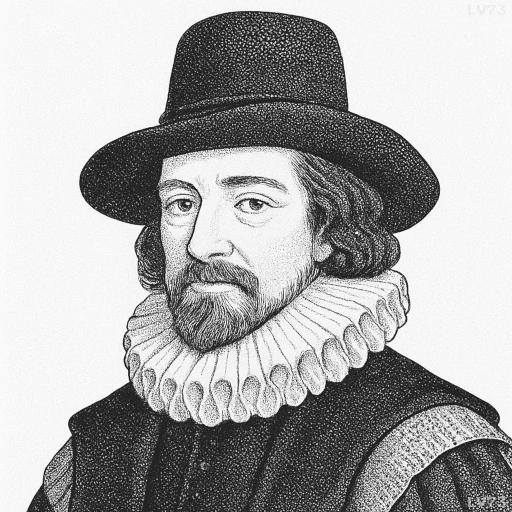“Beauty itself is but the sensible image of the Infinite.”

- January 22, 1561 – April 9, 1626
- Born in England
- Philosopher, theologian, jurist, politician, aristocrat
table of contents
Quote
“Beauty itself is but the sensible image of the Infinite.”
Explanation
In this quote, Francis Bacon suggests that beauty—whether in nature, art, or human form—is a reflection of something far greater and more profound, which he calls the “Infinite.” Bacon implies that beauty is not an isolated, superficial quality but rather a manifestation of a deeper, divine order or presence. It is a sensible image, something we can perceive with our senses, yet it points to something beyond itself—something boundless and eternal. Bacon’s perspective elevates beauty from being a mere aesthetic experience to a means of connecting with the unseen, the infinite, and the divine nature of existence.
This idea ties into the Renaissance belief in the interconnection between the physical and the metaphysical. During this time, there was an increasing appreciation for how the natural world, including its beauty, could reflect divine or higher truths. Artists, philosophers, and scientists were deeply interested in how beauty, harmony, and order in nature could be understood as part of a larger divine plan or cosmic structure. For Bacon, beauty serves as a bridge to something larger, a glimpse into the infinite or divine intelligence behind the universe.
In modern times, this quote resonates with contemporary philosophical and spiritual reflections on the relationship between aesthetics and spirituality. Many today see beauty—whether in nature, art, or even human relationships—as a way to connect with something greater than ourselves, whether that is a sense of transcendence, the universe, or the divine. The idea that beauty reveals the Infinite also aligns with the idea that there is a spiritual dimension to our aesthetic experiences, one that is both personal and universal. Bacon’s quote encourages us to recognize that beauty is not only a pleasure for the senses but a deeper reflection of the vastness and mystery of existence.
Would you like to share your impressions or related stories about this quote in the comments section?


